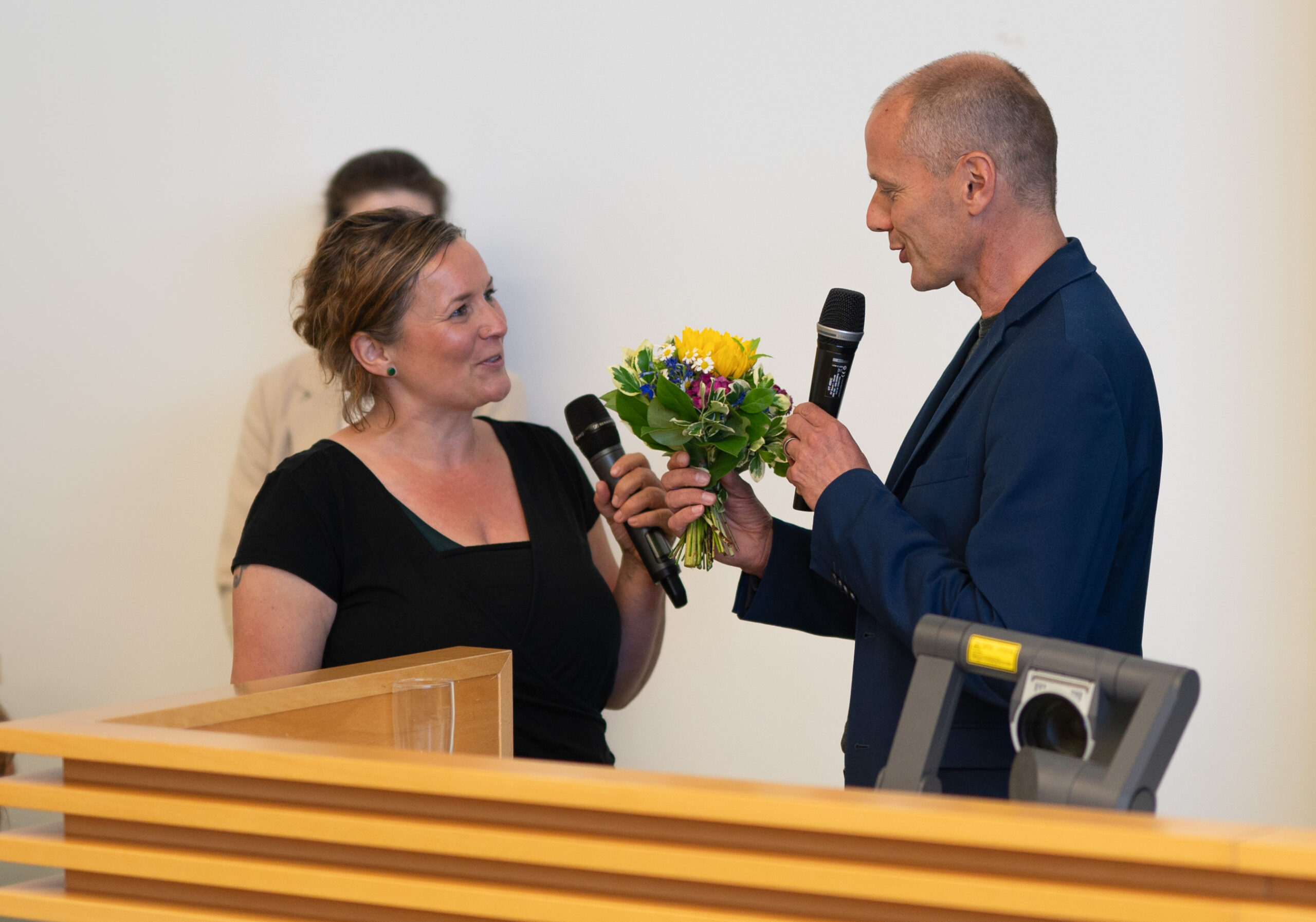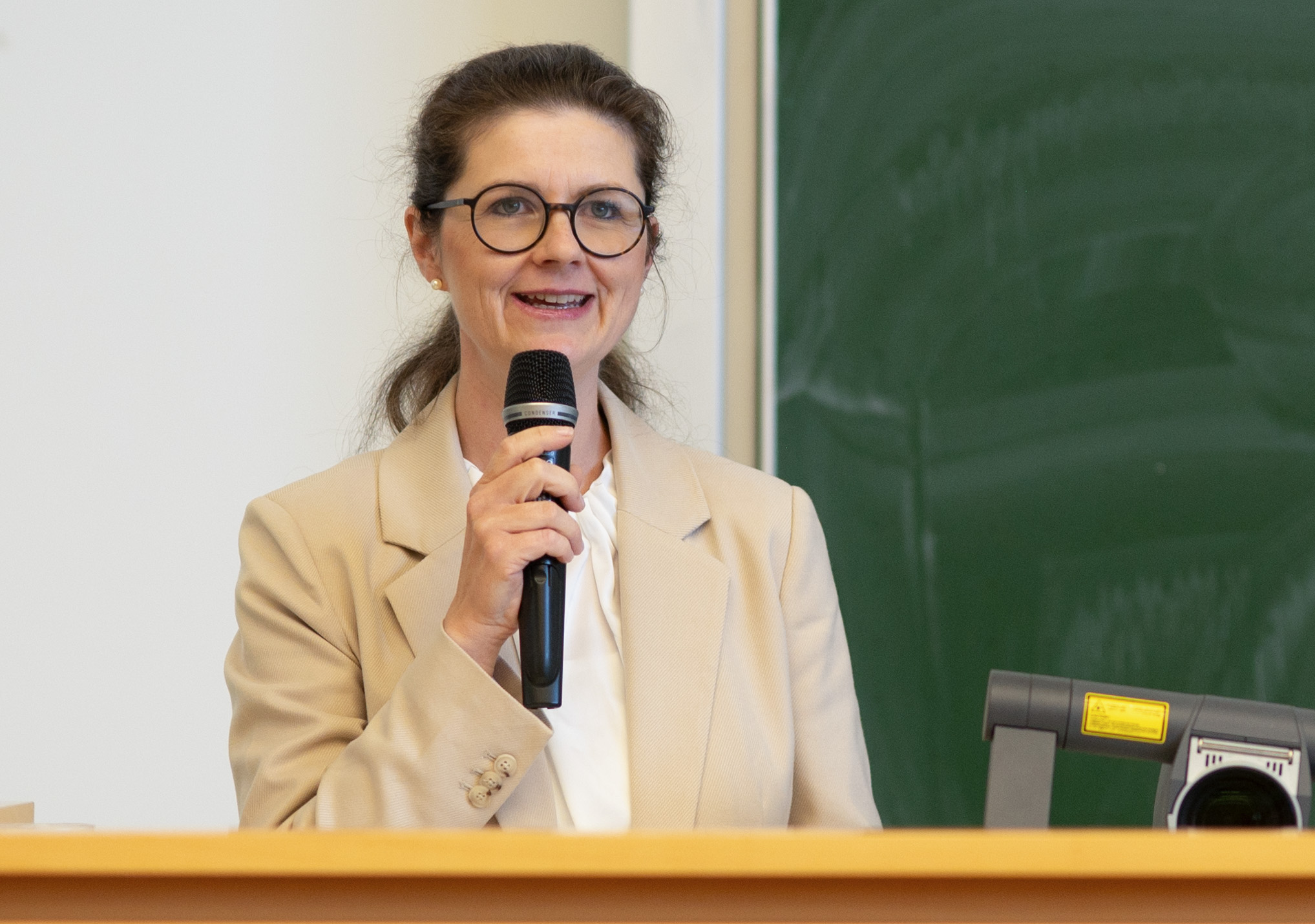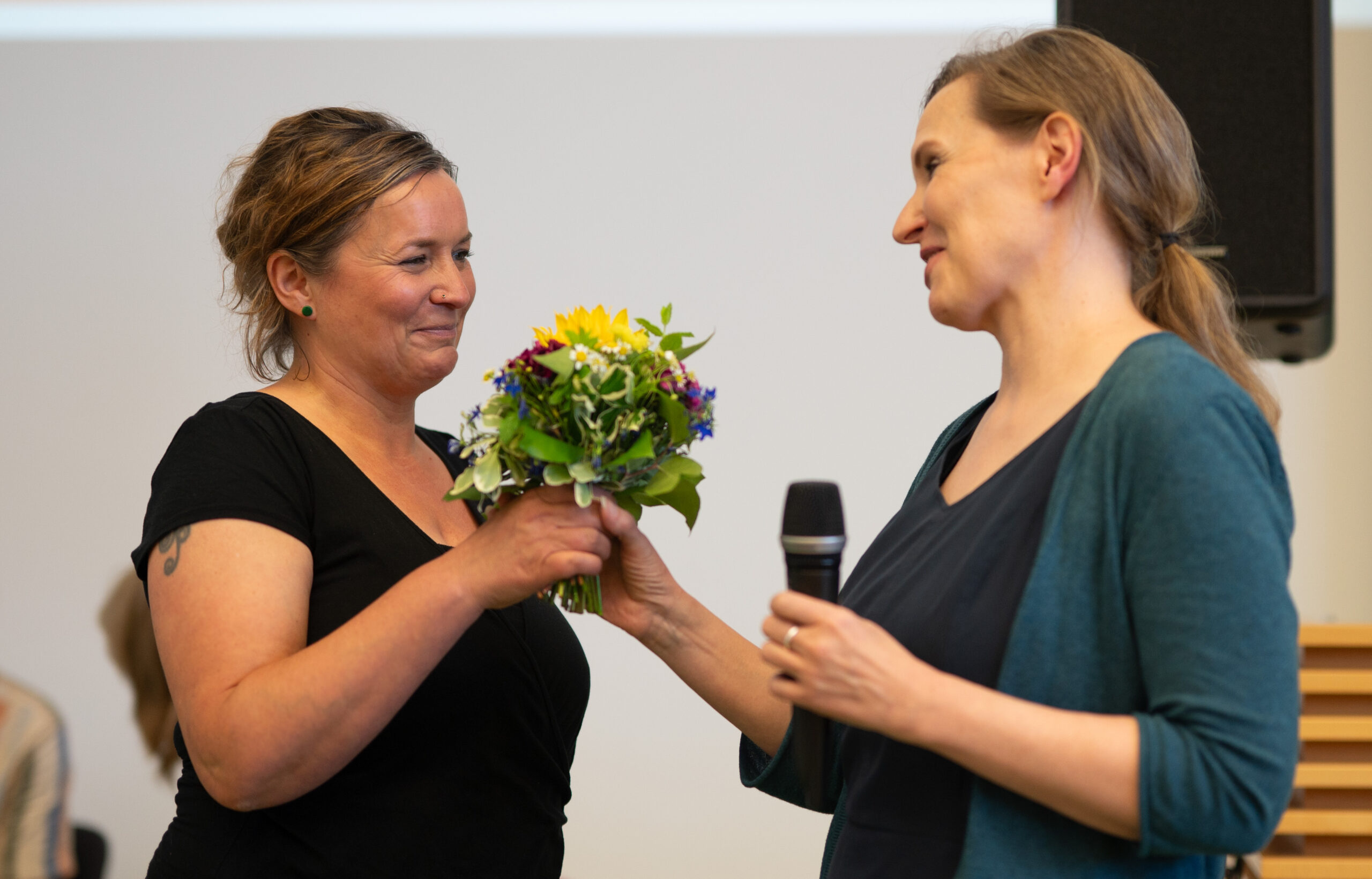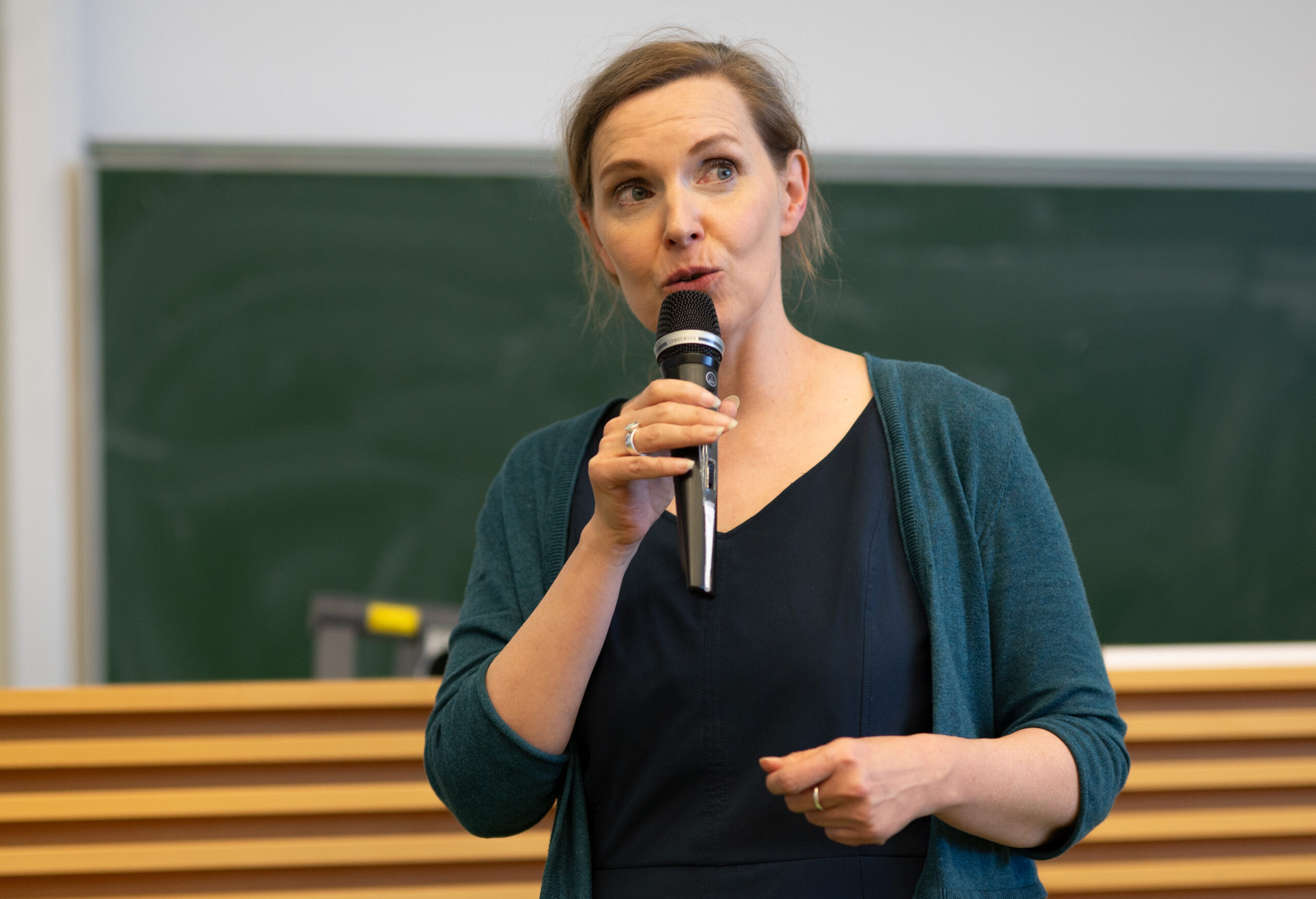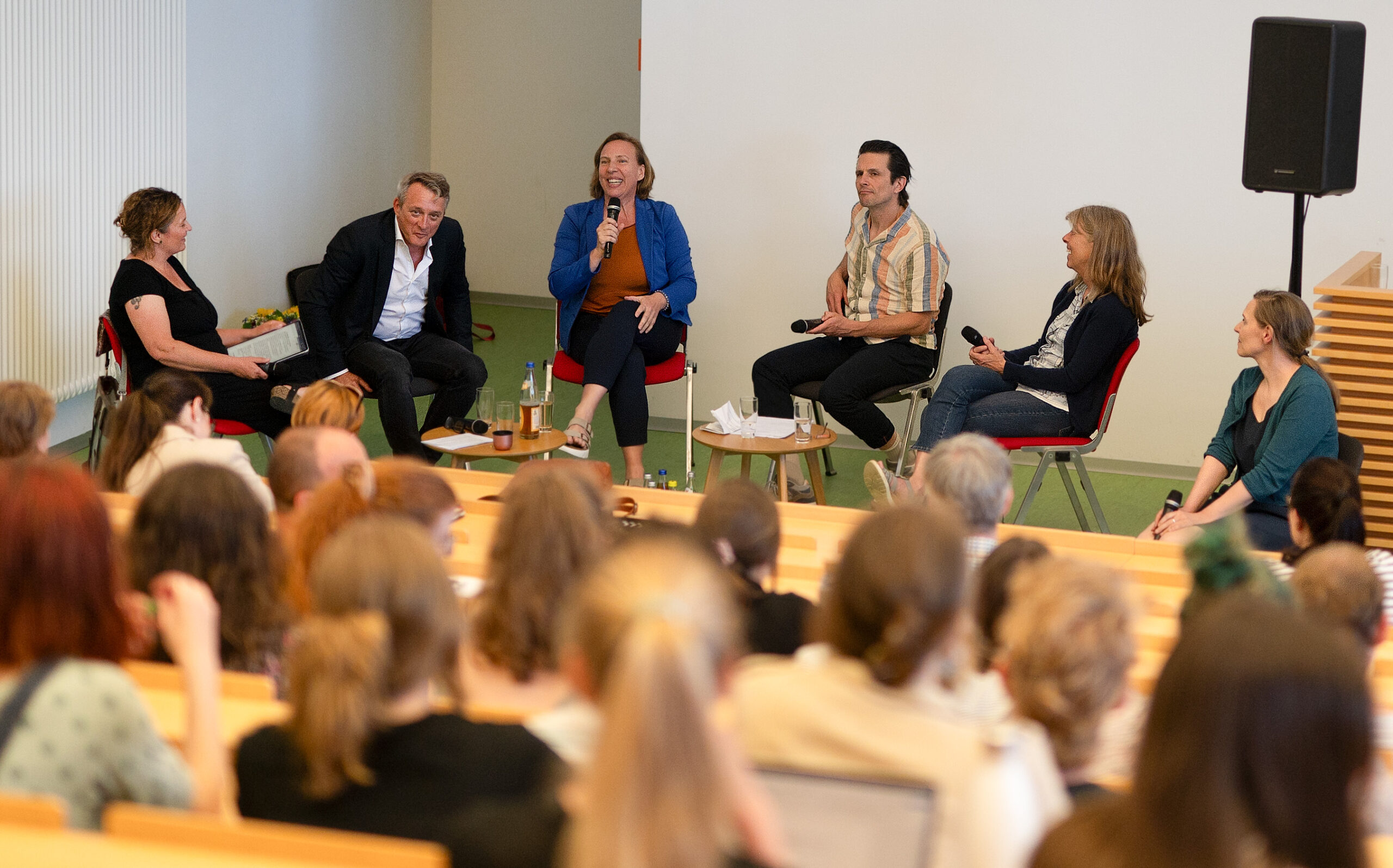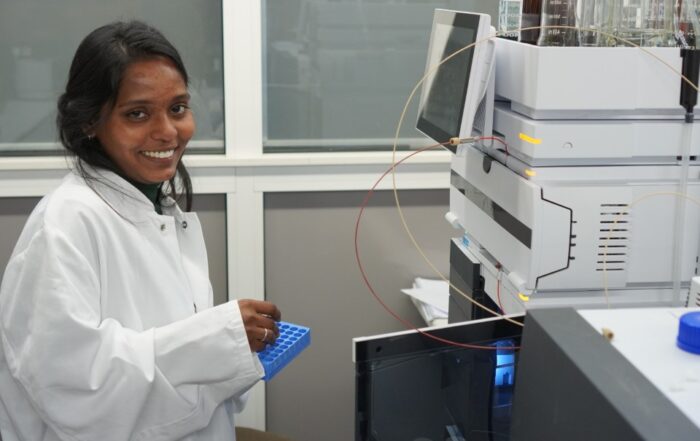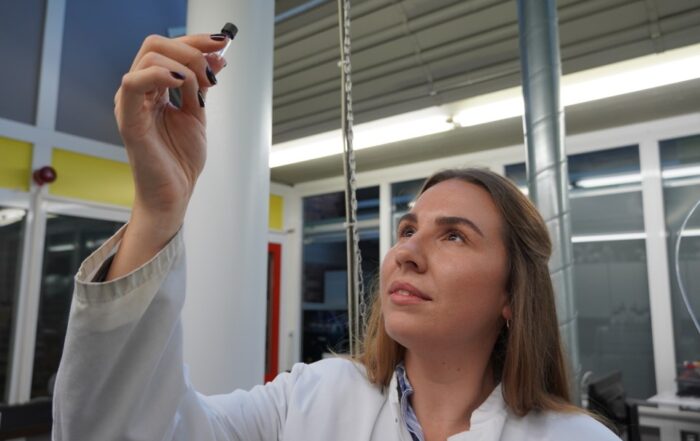8. August '24
by Press office
The Institute for Psycho-Social Health (IPSG) celebrates its 30th birthday in 2024. This was celebrated with various interesting events. A panel discussion was held at Coburg University of Applied Sciences on a current topic that is highly relevant to clinical social work and the Faculty of Social Work as a whole – but does not only affect social professions: “How can employee welfare succeed in times of a shortage of skilled workers?”.
When the Institute for Psycho-Social Health (IPSG) was founded, the current President of Coburg University of Applied Sciences was a mechanical engineering student in Kaiserslautern and had no idea that this institute with three employees would develop into a major player in the German-speaking world – and he certainly had no idea that he, Stefan Gast, would be paying tribute to the impressive development of this institute three decades later. At the IPSG’s 30th anniversary celebrations, University President Prof. Dr. Stefan Gast explained: “Today, 70 specialists work at the IPSG, and it is particularly nice that many of them are graduates of Coburg University of Applied Sciences.” This ranges from the specialist management of individual measures to management level. Gast emphasized that without the intensive theory-practice transfer that forms the core of the collaboration between the university and IPSG, the university would not have its pioneering role in raising the profile of clinical social work. And despite all the changes, one thing has always remained the same in 30 years of the IPSG: “the special commitment to children, young people and families with severe problems who live in highly problematic social contexts and need intensive socio-therapeutic support.”
The IPSG is the only institute affiliated with Coburg University of Applied Sciences. It was founded in 1993 by Helmut Pauls (Professor at the Faculty of Social Work from 1984 to 2016). Two years later, it was awarded the status of an affiliated institute in accordance with the Bavarian Higher Education Act. As a state-recognized independent youth welfare organization, the institute implements a wide range of child, youth and family welfare measures such as outpatient family support, early help, support and support classes, psychosocial specialist services, curative education and therapeutic outpatient clinics. The concept is based on a humanistic understanding of clinical social work that recognizes and supports people in their particular life situation.
An enriching exchange between university and excellent practice
“As the Faculty of Social Work, we have a very lively and long-standing cooperation with the IPSG,” explained Prof. Dr. Hellen Gross, Dean of the Faculty of Social Work at Coburg University of Applied Sciences. Every year, students from the Bachelor of Social Work complete their practical semester at the IPSG, where they receive excellent guidance. Staff at the IPSG support teaching in the faculty’s two social-clinical Master’s coursesin particular(part-time continuing education Master’s in Social Work: Clinical Social Work and Consecutive Master’s in Social Work with a specialization in Clinical Social Work) – by offering self-awareness, supervision and the possibility of excursions to the IPSG. The Dean emphasized the importance of the exchange with excellent practice and pointed out the diverse career opportunities for graduates.
“Students help to improve people’s living conditions and make an important contribution to society.”
Prof. Dr. Christine Kröger, who works closely with the IPSG as head of the part-time continuing education master’s course, emphasized the topicality and importance of the topic of employee welfare in social work: “Working with families under complex stress, in which children and adolescents develop severe emotional problems and psychiatric illnesses, for example, and help routines sometimes reach their limits, places high demands on professionals. To mark its 30th anniversary, the IPSG presented itself with events such as an open day, a street festival and specialist lectures, providing a multifaceted insight into the various measures. Due to the special connection with Coburg University of Applied Sciences, an exciting panel discussion took place in the HUK-COBURG Audimax, which Prof. Kröger helped to organize.
The topic was “How can employee welfare succeed in times of a shortage of skilled workers?”.
Appreciative leadership as a cornerstone of employee welfare
The topic of employee welfare was examined from different perspectives by Christian Kuhn, Managing Director of the Verein für Sozialpädagogische Jugendbetreuung, Steffen Tauss, Head of Social and Healthcare at the Brose Group, Prof. Dr. Christiane Alberternst, Equal Opportunities Officer at Coburg University of Applied Sciences, psychotherapist and management coach, and Pia Keller, Head of the IPSG Institute, who is developing a concept for employee welfare at the IPSG. Carola Gollub, Managing Director of the IPSG, acted as moderator and provided new food for thought in the discussion.
The starting point was the provocative question of whether there is a shortage of specialists at all; according to Pia Keller, it is very clear in child and youth welfare that it is much more difficult to recruit specialists in the area of residential care than in other forms of care. On the question of how employee welfare can be achieved in practice, Prof. Dr. Christiane Alberternst emphasized the importance of good leadership, which is characterized by clear objectives and an individual focus on employees. Christian Kuhn agrees: employee welfare in child and youth welfare services in particular requires clarity, for example through crisis plans and an overall good atmosphere with direct communication. This also means being approachable as management at all times. Steffen Tauss emphasized how important “meaningfulness” in one’s own work is for satisfaction; in addition, advisory services are important. It also promotes emotional loyalty to a company or institution if employees are supported – even in personal crises. Pia Keller explained that at the IPSG, appreciation, openness, but also supervision services, welcome teams for new employees and shared rituals and celebrations are an expression of caring for employees. The panel agreed that appreciative leadership is a cornerstone and starting point for employee care. Specific ways of retaining employees even in times of a shortage of skilled workers were also highlighted: constructive feedback discussions, a culture of appreciation and opportunities to shape the company through participation, for example through working groups during working hours.
The audience consisted of social work professionals, students and also important cooperation partners of the IPSG, for example from the Office for Youth and Family, who took the opportunity to find out more.


